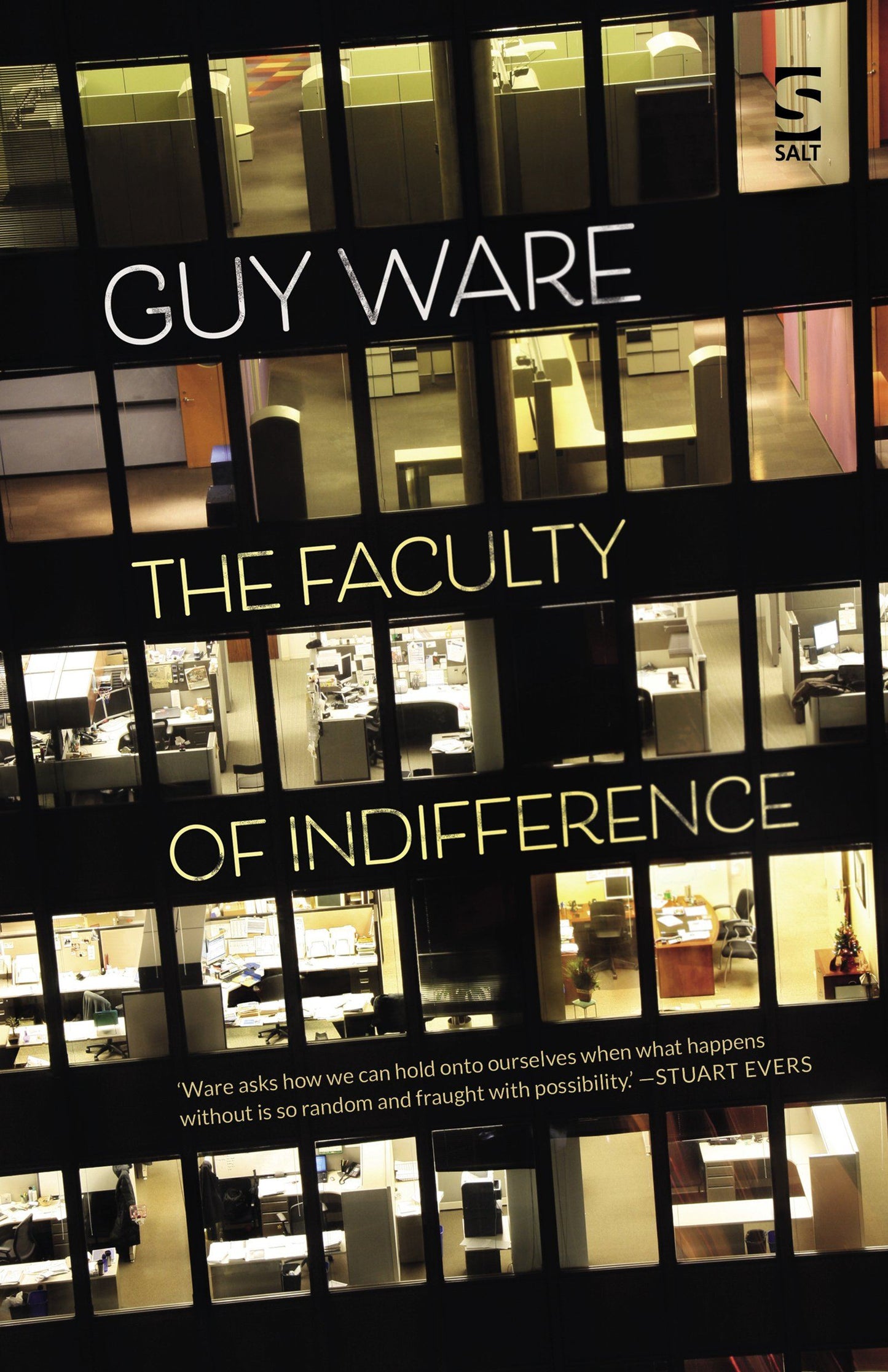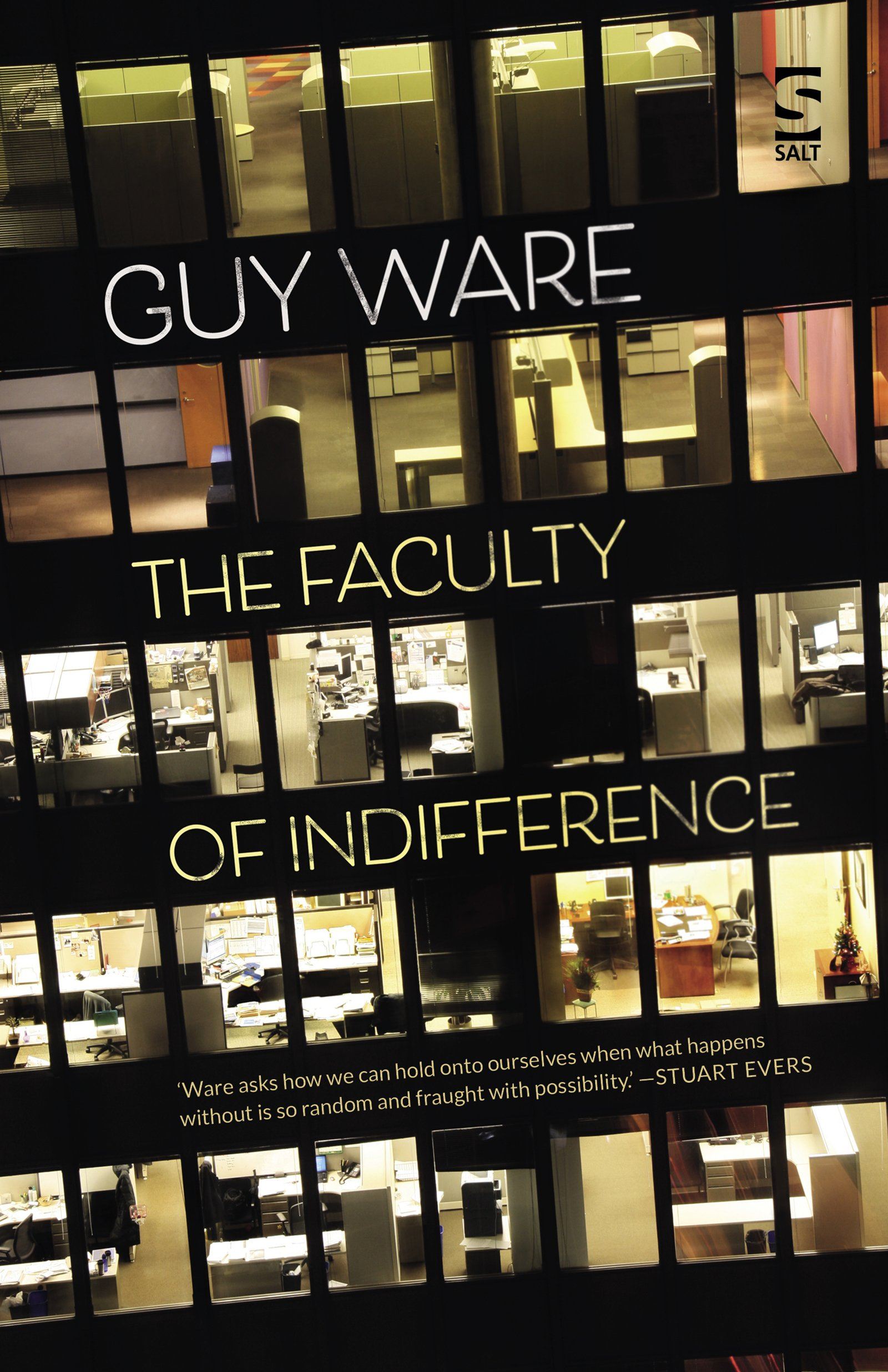Guy Ware
The Faculty of Indifference
The Faculty of Indifference
SKU:9781784631765
Couldn't load pickup availability
Synopsis
This is what a bad day looks like: a day when something happens.
Robert Exley works for the Faculty: he spends his life making sure that nothing ever happens. In counter-terrorism, that’s your job.
His wife worked there, too. She’s been dead for years, but somehow she’s never far away. Now their bookish son is leaving home. He writes an encrypted journal Exley feels obliged to decode, to read the things they cannot talk about.
When Exley takes on a colleague’s case, it leads to a flat full of explosives, guns and cash. The trouble is, it’s the wrong flat. And when Exley finds a man in an orange jumpsuit shackled to the floor deep beneath the Faculty’s offices, everything he thinks he knows turns inside out.
Mixing Beckett and St Augustine, prison diaries, Japanese Go and Greek tragedy, The Faculty of Indifference is a profoundly black comedy about torture, boredom, suicide and love. Trapped in the moment between an intolerable past and so much worse to come, Exley finds there’s nothing he can do but live.
Reviews of this Book
‘The Faculty of Indifference is both funny, diverting, exhausting and baffling all at once. Whatever your tastes, Guy Ware is a writer whose name should be part of the contemporary literary discussion. His is a post-modernism that pushes the past into our increasingly confusing world.’ —Rebekah Lattin-Rawstrone, Byte the Book
‘Ordinary life is a terrifying prospect in this existential satire about a London spook … The Faculty of Indifference is a book of dark shadows and dry humour. It’s a comedy about torture, death and loneliness, and an existential drama about a world that swirls and twists and turns on us without provocation.’ —James Smart, The Guardian
Praise for Previous Work
‘Fleshing out the shadowy metaphysical hints of Beckett’s novels, this intellectual romp is the best debut I have read in years.’ —Nicholas Lezard, The Guardian
‘The staff of the office are revealed as gatekeepers to the afterlife, setting up a neat reversal in which determining the resting place of recently departed souls is treated like any normal job – employees rock up late and use work computers for their own projects – while mundane tasks, such as making couscous salad, are addressed with scholastic intensity.’ —Sam Kitchener, The Literary Review
‘About halfway through the book, Ware sheds light on the mysterious title. The fed beasts are from the Book of Isiah, one of those bloodthirsty sections about offerings and livestock slaughter and so on. But Ware’s disdain for the corporate world’s overfed beasts is apparent but rendered with enough empathy and humour that it does not overbear this delightful book.’ —Judith Sullivan, SHOTS Crime & Thriller Ezine
‘Absent, slippery or suspect ‘facts’ are central to this unapologetically knotty novel.’ —Stephanie Cross, Daily Mail
‘Stories passed down through generations can shape a family but are also subject to the distorting lenses of memory and perspective. Author Guy Ware’s grandfather worked for MI6, escaped from Norway in 1940 and kept a diary, but his new book Reconciliation (Salt, £8.99) is fiction. It follows Holly Stanton, whose grandfather was a spy and happened to be in Norway when the Germans invaded, and who kept a diary. It’s a well-known family story but it only becomes tangible to Holly when she finally gets her hands on the diary. Moving between various real-life events, each laced with errors and lies, Ware demonstrates to the reader how easily we can be misled as he explores the ethics of storytelling in this wartime thriller.’ —Antonia Charlesworth, Big Issue North
‘This ingenious novel succeeds in being both a highly readable story of second world war derring-do and its aftermath and a clever Celtic knot of a puzzle about writing itself… Just who is telling this story? There are different narrators, but verbal tripwires indicate that all is not as it seems: impossible echoes from one person’s account to the next alert us to the, yes, fictional nature of what we are being drawn into and pull us up short. The complexity of who saw what and wrote what is maddening but also exhilarating, and very funny in places.’ —Jane Housham, The Guardian


